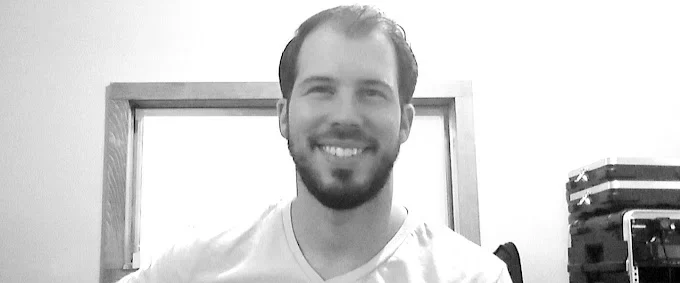The summer leading up to my freshman year of high school was an exciting time. I was going to buy my first guitar! Well actually it was a bass guitar, but it was a start. The interesting reason why I decided to buy a bass was because, generally, it seemed a bit easier to play (my apologies to all the bassists out there, but I didn’t know much about the instrument). The six string seemed to demand a much more complicated set of challenges, namely, playing chords and guitar solos!
On top of the intimidation factor, I was also afraid that I might be too old to start learning. I know that sounds ridiculous, but I can remember going through my childhood and knowing of other kids who played the guitar before I even considered giving it a shot. One of these kids in particular even performed during our 8th grade graduation ceremony. Meanwhile, I still hadn’t picked up a guitar yet! Looking back, I thought people who played (especially at a competent level) practically came out of the womb with a guitar in their hands.
This mentality hindered my progress for the first year I had my bass. Then, I had an encounter with another local kid who could play the guitar pretty well. Except this time, instead of being intimidated, I was finally motivated to take on the six string (chords and all).
What made the difference this time? Well the most important thing this kid did was helped to demystify the guitar. He pointed me in the right direction, showed me some cool tricks, and not long after that meeting I was playing along side him in a cover band. I also started taking private lessons and was inspired like never before to play and practice everyday.
I think this is a crucial hurdle to get over if you’re a beginner or even thinking about learning an instrument. Sometimes it’s in our nature to over-complicate a new skill set. Unfortunately, the end result is that we psyche ourselves out into thinking that we can’t do it. But there’s always someone out there who can demystify the instrument, break it down to its most basic parts, and suddenly the undertaking seems more manageable.
Now this is where the topic of age comes into play. I was about 15 years old when I finally started to practice the six string effectively. According to my own naive mindset at the time, this was way too old to start playing. I had already dragged my feet for too long and hit too many dead ends in my playing. But for some reason I wasn’t thinking about any of those negative thoughts once I was properly motivated.
What if I did give in to my own negativity? My life would be far less fulfilling and I would always have a sore spot of regret. I think the lesson here is to never believe that you’re too old to learn something new. Once we reach a certain age, people start to think that the ‘here and now’ is static. We’re stuck in our ways, creatures of habit, paralyzed by routine and schedules. Don’t let this mentality prevent you from trying new things in life.
Some of the blame can be cast on society as well. The conventional wisdom is that children can adapt and adjust to new skill sets faster and more readily than adults. But is this really true? There seems to be mounting evidence that this idea is unsubstantiated by empirical data. Perhaps it has more to do with what you read or hear about regarding the topic of aging in our culture, whether it’s true or not. The power of suggestion is a real phenomenon which sometimes can propel us in our endeavors, but in this case, may hold us back. There are two articles regarding the relationship between aging and learning which I have provided links for at the bottom of this page. You may be pleasantly surprised by what you read.
The trick is to not get discouraged. Don’t say to yourself, ‘forget it, you’re too old to start learning now.’ Or ‘I tried learning once before, but I just didn’t have what it takes.’ ‘That guitar’s been collecting dust in my room for years now.’ Sometimes you just need some inspiration to push you into a positive state of mind. If you have a friend, or someone you work with who plays — ask them where to start. And make sure you get a few different perspectives if you can.
We all know that everyone learns differently. Some will encourage you to learn all the fundamentals first (written notation, music theory, etc.), while others will push you to practice popular cover songs and learn the fundamentals as you go along. The best part is — there’s no right or wrong way. The only thing that matters is that you actually start to play, you’re having fun, and your guitar stops collecting dust!
If you want to read up on this topic some more, check out these articles. And let me know your thoughts by commenting below!
CNN – The Aging Brain: Why getting older just might be awesome
CNN – Learning something new – your brain will thank you
RVEQNXA9669Q
